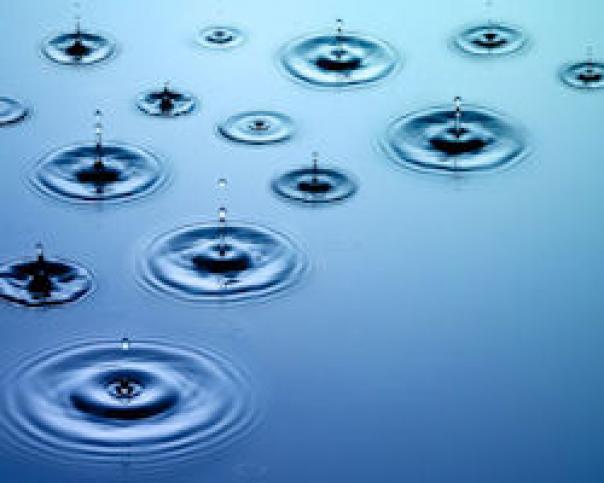
While the debate about tap versus bottled water goes on, huge volumes of the latter are still being sold to consumers wanting a drink on the go. Bottled water has healthy and ethical connotations, portability and recyclability, plus of course competitive pricing, which ticks all the boxes for consumers.
Analyst Zenith International says the UK bottled water market achieved a 2.8% increase in annual sales [MAT 52 w/e 24/12/11] adding up to more than1.8 billion litres sold, thus providing a healthy profit for the operator.
Danone is still considered to be the top supplier in the bottled water category with Evian, with Buxton from Nestlé and Highland Spring making inroads into the chiller cabinet.
“Bottled water contributed 20.9% of the volume growth in soft drinks in 2011,” says Wenlock Spring director Matthew Orme. “In retail terms alone, it has a 14.9% volume share of soft drinks annually, with a seasonal peak of 16.4% in the summer when consumers opt for immediate forms of hydration as temperatures rise, and it remains incredibly popular.
“Mintel’s consumer analysis report on bottled water highlights that 63% believe it is a convenient alternative when on-the-go and according to the report is most definitely on-trend for the modern, on-the-go consumer. Bottled water is refreshing, portable, easily accessible throughout the day and a vital source of hydration,” he adds.
How water is presented to suit consumers’ different needs is another consideration and Orme suggests 330ml and 500ml plastic bottles are perfect for serving the takeaway market. “To create a point of difference and to avoid direct price comparison, the 330ml bottle can be used as part of a combination deal and the slightly larger 500ml size for an individual water sale.” For drinking in a café, individual servings of 330ml, or 750ml glass bottles to share is an option, he adds.
“Encouraging the sale of combination deals where consumers buy a sandwich, snack, a coffee and bottle of water for example, will encourage an extra sale rather than multi-buys that just give discount for the sale, which the retailer may have achieved anyway. By offering a choice, they are more likely to choose to buy rather than not to buy. Coffee houses and cafés should ideally display bottled water in chillers where they can be seen.”
James Roberts, joint managing director at Peros, a leading independent distributor of Fairtrade beverages and strong supporter of ethical brands, believes at the moment there isn’t a sales alternative to bottled water because it’s so convenient.
“We don’t believe consumers are drinking bottled water primarily for hydration. What they like is the convenience of having water with them when they are on the move – and in this respect, tap water is not a viable alternative. Market reports bear this out because buying water for travelling is the most popular occasion to purchase, with 64% of UK bottled water drinkers doing so. This means it’s vital to service this grab-and-go sector with smaller, easily portable bottles.
“The recession has affected sales but the market is still very active. Reports suggest half of the UK population drinks bottled water with strong sales to 15-34 year olds, women and the ABC1 groups. These are also exactly the same groups that are likely to be persuaded to buy into the ethical campaigns supported by the water they purchase.
“A good example of this is One Water, the brand that gives all its profits to fund drinking water schemes in Africa. Over the last five years, through sales of One Water, we’ve helped to fund more than 100 PlayPump projects, supplying clean fresh water to nearly 200,000 people across sub-Saharan Africa.
“Flavoured waters represent the next generation of bottled waters. Those that also provide health-enhancing properties advance the concept of bottled waters one step further. One Vitamin waters are available in three flavours, each with added vitamins. This water isn’t just good for you – it also helps fund the seeds, tools and training needed to plant vegetable gardens and fruit trees in Africa, providing communities with nourishment and a sustainable source of income.
“If we were to offer one tip on getting your provision of bottled water right, we would suggest you remember to highlight the ethical concept behind the brand – ‘joining the cause’ will help consumers justify the expenditure and encourage brand loyalty.”
According to water filtration experts there is nothing wrong with tap water, only that filtered tap water is better for drinking on its own and for making other drinks than unfiltered water straight from the tap. There are geographical reasons for variations in water with some areas having harder water than others causing limescale to form.
Vivreau says clean, filtered water removes all contaminants to leave a beverage with a surface free from the oily shine found on non-filtered water, and also allows the taste and smell of a hot drink to infuse, providing customers with a better experience and increased sales for the operator.
Earlier this year Vivreau announced a partnership with fellow filtration experts BRITA, which would help both companies move into new markets.
“The supply of high quality water is often something overlooked, especially within establishments with a focus on grab-and-go purchases, says managing director Stephen Charles. “However due to the large volume of hot beverages produced, it should be top of the agenda.
“Modern filtration machines such as the Vivreau Vi Tap are built into a mains supply, fitting neatly into a small space, making them ideal for high street cafés with limited space. Connected through the mains also allows for an unlimited supply of fresh filtered water.
“Fitted with the latest in BRITA water filters, the high quality components work to eliminate virtually all pollutants and chemicals found in tap water.”